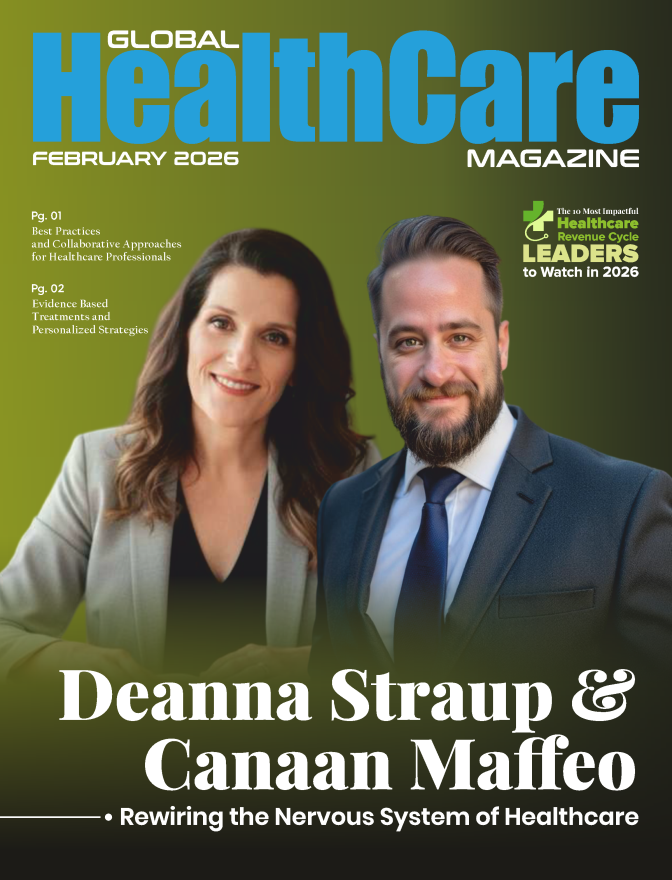When Dr. Jon Bloom, Co-founder & CEO of Podimetrics, walked into the operating room at Massachusetts General Hospital, the smell of antiseptic and metal instruments always carried a weight heavier than the air itself. Each patient lying under the bright lights told a story long before the first incision. For many, that story ended the same way, with a diabetic foot ulcer that had spread too far, too deep, leaving amputation as the only option.
He had performed that surgery more times than he could count. And with each operation, the same thought returned, sharper each time: What if this could have been prevented?
It was never a single case that changed him. It was the pattern, the quiet repetition of loss. Every foot removed felt like an indictment of the healthcare system’s blind spot. That thought followed him beyond the hospital corridors, into his next chapter, one that would blur the boundaries between medicine, technology, and empathy.
The Spark at MIT
In 2011, Dr. Bloom arrived at MIT not to invent the next medical device but to find a new way of thinking. He had already been an anesthesiologist, a clinical professor, and a medical affairs director at Covidien. What he wanted now was to understand why innovation in healthcare often arrived too late.
It was at MIT’s Hacking Medicine, a weekend hackathon, where everything began to change. The event was a chaotic symphony of caffeine, whiteboards, and ideas. He wasn’t expecting much when a classmate, David Linders, approached him with a curious proposal: a device that could detect early signs of foot ulcers by sensing temperature changes.
“It sounded oddly simple,” Dr. Bloom later recalled. “But then I thought about all the feet I had seen lost. It clicked. This could stop those amputations before they even began.”
The team worked through the night, surrounded by equations, wires, and the kind of hopeful exhaustion that defines true invention. By the end of the weekend, they had built the foundation of what would become Podimetrics and won the hackathon.
The victory wasn’t just a trophy. It was validation. It whispered, you can build something that saves lives before they need saving.
The Birth of Podimetrics
Podimetrics began as an idea scribbled on a napkin and became a company headquartered in Somerville, Massachusetts. Its signature product, a smart mat, looks deceptively ordinary. You step on it like a scale, and it quietly scans your feet for temperature differences that signal inflammation, often weeks before an ulcer becomes visible.
The data doesn’t just sit idle. It flows to clinicians who can reach out, intervene early, and often prevent the ulcer altogether. The result is staggering. Podimetrics’ system detects 97 percent of potential ulcers early, drastically reducing amputations and medical costs.
But the mat is only half the story. The other half, perhaps the more human half, is Podimetrics’ remote care support. Behind every reading is a real person who calls, guides, and listens. “Technology alone doesn’t heal,” Dr. Bloom often says. “It’s the human connection that turns data into care.”
The Journey from “I” to “We”
At MIT’s Trust Center for Entrepreneurship, Dr. Bloom discovered a culture that felt foreign to his medical training. Medicine was hierarchical. You spoke when spoken to. Startups, on the other hand, were democratic, restless, and buzzing with creative disobedience.
“I used to work alone,” he admits. “But at the Trust Center, I learned that great ideas are born in groups, not in isolation. The switch from ‘I’ to ‘we’ changed everything for me.”
He spent nights at the Center, surrounded by young founders chasing impossible ideas. People like Bill Aulet, the Trust Center’s managing director, became mentors and believers. “Bill wasn’t just teaching business,” Dr. Bloom recalls. “He was teaching how to lead, how to build something worth believing in.”
That something soon drew real-world validation. Podimetrics won MIT’s $100K Pitch Competition, then the Life Science track, and eventually the attention of investors in Silicon Valley. Funding followed, and so did purpose.
Dr. Bloom took a leave of absence to lead Podimetrics full time. It wasn’t a decision made out of ambition but necessity. “When you’ve seen the human cost of delay,” he said, “you can’t walk away from prevention.”
Reimagining Foot Care and Beyond
Today, Podimetrics stands at the intersection of compassion and technology, redefining what diabetic care looks like. Its mission extends beyond feet. It is about hope, about giving people the confidence to live independently without the looming fear of complications.
The company’s approach blends remote monitoring with personalized human outreach, making it not just a product but a service ecosystem. It empowers clinicians, supports caregivers, and restores dignity to patients who are often forgotten in the healthcare hierarchy.
In 2024, Podimetrics was named one of Fast Company’s World’s Most Innovative Companies, a nod not only to its technology but also to its empathy. It also secured a place on both the Inc. 5000 and Deloitte Technology Fast 500 lists, affirming that what began as a hackathon idea had grown into a movement.
Dr. Bloom doesn’t talk about growth in terms of numbers, though. He talks about stories. Stories like the veteran who kept his leg because the mat caught inflammation early, or the elderly woman who could walk to her garden again.
“These stories are our true metrics,” he says softly. “That’s the real return on innovation.”
The Science of Compassion
Ask Dr. Bloom what drives him today, and his answer isn’t about technology or market share. It is about empathy at scale.
“We often measure healthcare success in surgeries performed or medications prescribed,” he says. “But the real measure should be in the suffering we prevent.”
He envisions a world where chronic care feels personal, not transactional. A world where every patient, regardless of means, has access to tools that keep them whole.
This vision powers everything at Podimetrics, from engineering algorithms to designing outreach scripts. The mission is not just to heal but to humanize healthcare again.
A Life’s Work, Still Unfolding
More than a decade after that hackathon weekend, Dr. Bloom still spends time mentoring students at MIT. He returns to the Trust Center, walking the same halls where Podimetrics began, this time as a mentor, not a student.
The story has come full circle, yet it is still unfolding.
When asked what keeps him going, he pauses for a long moment, then smiles.
“Because somewhere, someone is still losing a limb unnecessarily. And until that stops, my work isn’t done.”
Also Read: The Most Prominent Leaders in Foot Care & Lower Limb Health to Watch in 2025













